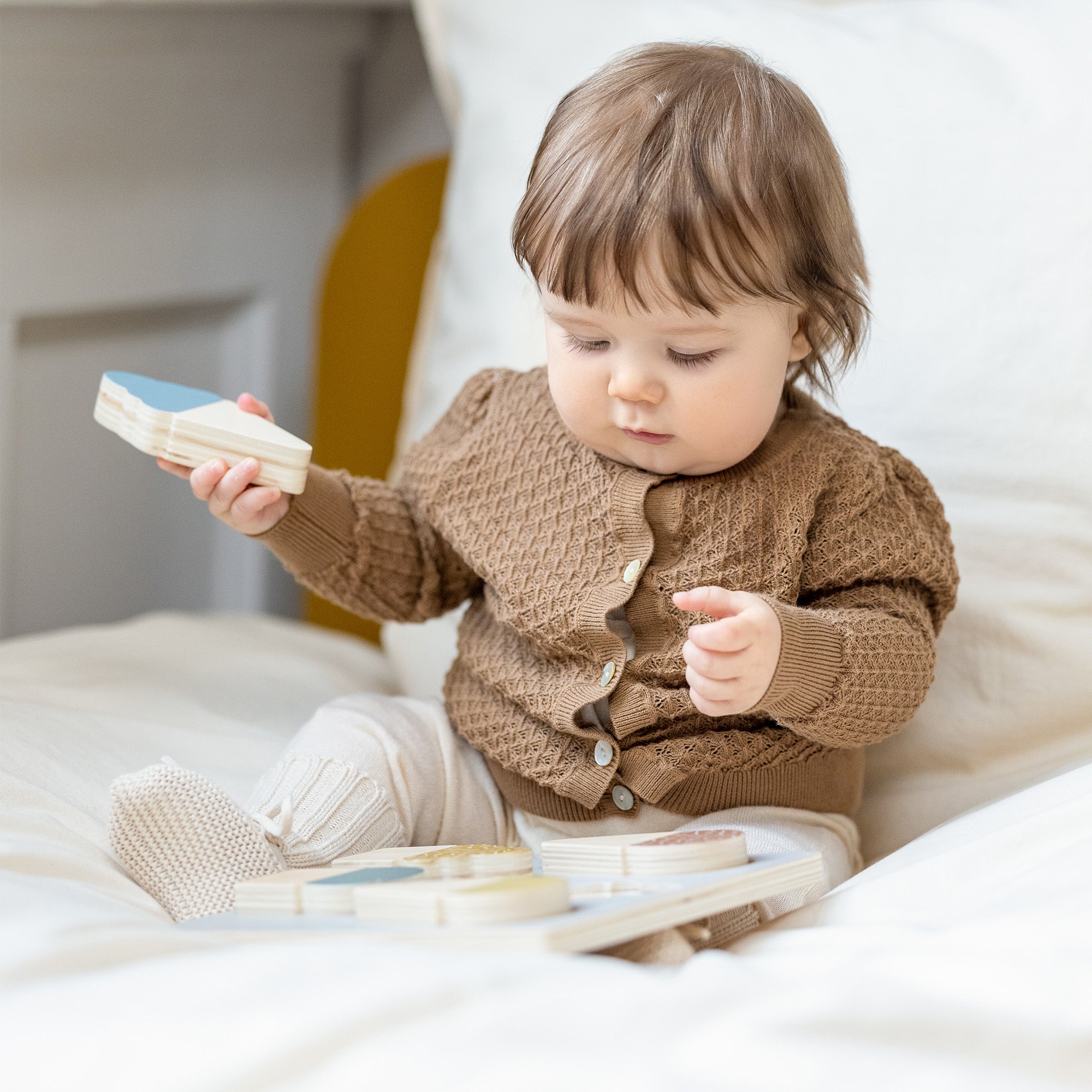Toddlers between 12 to 18 months are busy exploring the world around them. Toys are being turned, twisted, and banged against hard surfaces, especially if that results in funny new sounds. But which toys should you choose if you want to be sure to support your baby’s development, both physically and cognitively? Well, here are four types of toys to consider.
Highlights:
- Toys are not just toys – they’re objects your child will attach profound feelings to.
- Rule of thumb: Go for battery-free toys that leave things up to imagination.
- Here are four type of toys that support little children’s development:
- Musical toys: A fun way for toddlers to express themselves through sounds.
- Weigthed bean bags: Your child begins to understand the basic laws of physics.
- Puzzles: A great puzzle to support hand-eye coordination and reasoning.
- Stackers: Improves your toddler's analytical abilities and fine motor skills.
More than Just Toys
Anyone who’s stumbled upon an old toy from their childhood days knows that toys are not just toys. Attached to the little pieces of wood or fabric are feelings of love, joy, and genuine, childlike excitement. Therefore, be sure you choose the right toys for your child to begin with.
“Too many toys are being designed for one time use and all that these toys seem to do is make a sound, use a lot of batteries, and break. Where’s the fun in that? I like toys that last for a long time. Toys you want to keep for your children and grandchildren, and toys that ask children to be creative and imaginative,” says family advisor Lola Jensen.
Here are four type of toys that support little children’s development:
1. Musical Toys
Go for this type: toddlers love to play the Xylophone and the Drum, but percussion instruments like Maracas are also fun and fit perfectly with your toddler’s little hands.
Why your toddler will love them: when your child is still unable to communicate in whole sentences, it’s immensely fun for them to express themselves through sound-making toys! And with pleasant sounding instruments, it’s also hard for adults to keep their hands away, often resulting in a shared music experience.
2. Weighted Bean Bags
Go for this type: see if you can find a set of weighted Bean bags where each bag has a unique weight, shape and feel to pique your toddler’s curiosity.
Why your toddler will love it: your child will marvel at the smooth and rough textures of these stimulating bean bags. Not even two years old, and your toddler can begin to understand the basic laws of physics: how a heavy bag will fall to the ground quicker than a lightweight bag, and how a round shape is different from an oval shape, for example.
3. Puzzles
Go for this type: your child’s first Puzzle should be a simple peg puzzle with no more than five or six chunky puzzle pieces. Go for a theme you know your little one will adore, perhaps farm animals, vehicles, or fruits?
Why your toddler will love it: it’s fun to try and hit a target with each puzzle piece. And this game exercises not only your child’s hand-eye coordination and fine motor skills but also their ability to concentrate, reason, and solve problems.
4. Stackers
Go for this type: a Stacking toy with a handful of chunky building blocks of slightly different shapes and sizes.
Why your toddler will love it: small children just love games where you build something, only to knock it down the next minute. Especially the knocking down part, they find extremely funny. And it’s not just for the sheer fun of it. A stacker requires precision and control over every small muscle in wrists and fingers, thereby improving your toddler's analytical abilities and fine motor skills.

